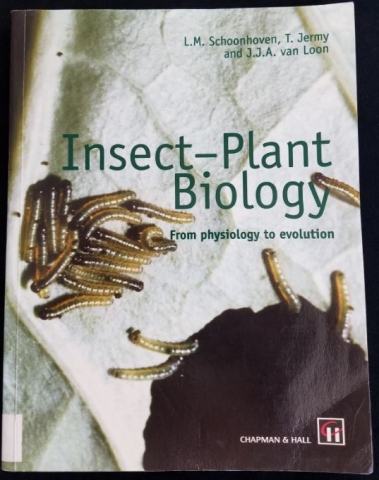Insect-Plant Biology
Insect-plant biology : from physiology to evolution
The relationship between plants and insects is impacted by generations of evolution by both insects and plants. Insects consume about 10% of plant annual production in natural habitats and even more in agricultural systems. For that reason, plants have had to adapt their defensive mechanisms to fend off these predators. Consequently, some insects have become specialized feeders in order to sustain life. Insect-Plant Biology focuses on the mechanisms that make insects specialized and how plants respond to these invasions. Some of these mechanisms include food-plant selection, nutritional physiology, and endocrinological aspects of life cycle synchronization with host plant phenology. The Terrestrial Ecology lab group at the Smithsonian Environmental Research Center (SERC) studies insect herbivory as part of its research on global warming, biodiversity, and tree growth. SERC Library resources, such as this title, are important foundations and resources for the lab's work.
Discover more about this book in our Catalog.
Adoption Type: Build and Access the Collection

